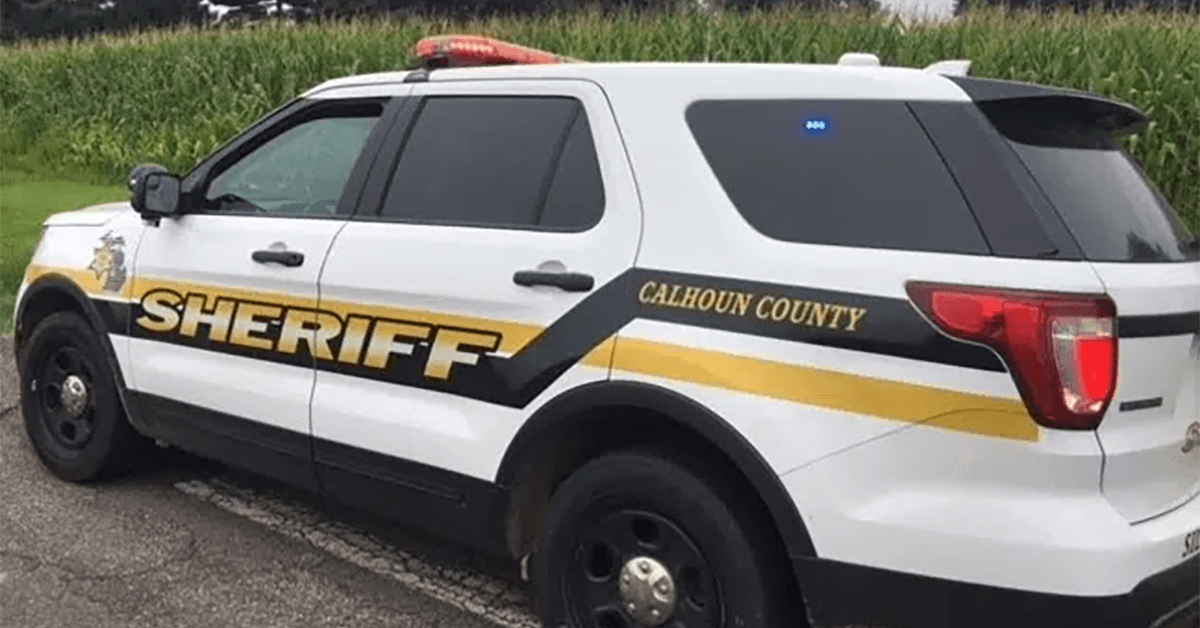Cannabis Crowdfunding Scheme Leads to Legal Quandary for Michigan Man

In a recent development in a Michigan federal court, Robert Samuel Shumake Jr., also known as Bobby Shumake Japhia following a legal name change, has been directed to secure new legal representation or inform the court of his intention to self-represent. This directive comes in light of Shumake's failure to compensate his previous attorney, sparking allegations from the U.S. Securities and Exchange Commission (SEC) of orchestrating a fraudulent $2 million crowdfunding operation related to cannabis and hemp real estate ventures.
U.S. District Judge Matthew F. Leitman granted the withdrawal request from Jonathan Uretsky of PULLP, Shumake's former lawyer, citing nonpayment as a valid reason for the termination of legal services. Uretsky's request to withdraw highlighted a breakdown in the attorney-client relationship, compounded by unsuccessful attempts to establish a payment plan for the outstanding fees amounting to approximately $36,000 as of April 2022.
During a court hearing, Shumake mentioned his financial struggles and a recent personal bankruptcy filing in California, which he believed would temporarily halt proceedings against him. However, the SEC has contested this, urging the continuation of its lawsuit by arguing that its enforcement action falls under "police power," exempt from bankruptcy's automatic stay provisions.
Judge Leitman has given Shumake a window of 30 days to arrange for new legal representation or declare self-representation, after which he will have 21 days to address the SEC's allegations. These allegations stem from a September 2021 action initiated by the SEC against Shumake and principals of two companies accused of misappropriating funds from investors through deceitful crowdfunding offerings related to cannabis and hemp real estate projects between September 2018 and June 2020.
The SEC's investigations have revealed that Shumake was a pivotal figure in these offerings, concealing his involvement to obscure his prior criminal record related to mortgage fraud. Allegedly, he collaborated with Nicole Birch and Willard Jackson, misleading investors about the companies' management expertise in real estate and diverting substantial funds for personal use.
This case marks Shumake as the final defendant in a series of legal actions that have already seen settlements and judgments against other involved parties, including a significant disgorgement and civil penalties against Birch, a permanent securities law violation ban against Jackson, and a settlement with the crowdfunding platform Fundanna and its CEO.
Furthermore, Shumake's legal troubles extend beyond this case, with a guilty plea in 2017 for violating Michigan's Credit Services Protection Act in a separate mortgage audit services venture.
As the legal proceedings continue, the SEC, represented by John E. Birkenheier, Jerrold H. Kohn, and Dante A. Roldàn, declined further comments. The case, officially recorded as U.S. Securities and Exchange Commission v. Robert Samuel Shumake Jr. et al., remains pending in the U.S. District Court for the Eastern District of Michigan, reflecting ongoing challenges in regulating the intersecting worlds of crowdfunding, cannabis, and real estate investments.
Menominee's Efforts to Resolve Dispensary Lawsuits Hit Roadblocks

In Menominee, Michigan, the city's legal disputes with several cannabis dispensaries are showing no signs of resolution, complicating efforts to find a mutual agreement. Mayor Casey Hoffman's optimism for a near-term settlement has been dampened following a recent court hearing, highlighting ongoing challenges in negotiations that have spanned several years.
The city has been embroiled in legal battles over the number of dispensaries allowed within its boundaries. These disputes took a new turn at a recent court session presided over by 41st Circuit Court Judge Mary Barglind, where attorneys representing both the city and the dispensaries, including Rize, the Fire Station, Lume, Higher Love, and individual Adam Michaud, discussed various legal motions via Zoom.
The heart of the contention lies in the renewal of local cannabis business licenses introduced by the city, which now include a clause that prohibits dispensaries from suing the city. This was after Judge Barglind mandated mediation earlier in the year, leading to Rize and the Fire Station proposing a partial settlement. However, disagreements persist, particularly around the Michigan Regulation and Taxation of Marihuana Act (MRTMA), specifically concerning the city's limits on cannabis business licenses.
Menominee's City Council rejected an initial settlement offer in February, countering with a proposal that sought a comprehensive dismissal of the lawsuit. This proposal included amendments to zoning laws and allowed the disputing dispensaries to relocate. Despite these efforts, attorney Mike Cox, representing Rize, expressed frustration over the city's rejection of multiple settlement ideas, suggesting the ball is now in the city's court to initiate the next step.
The city's legal representative, Matt Cross, pointed to Lume and Higher Love as obstacles in reaching a settlement, citing their resistance to dismissing MRTMA claims. This impasse has led to a situation where plaintiffs are considering taking their claims to trial, a move Cross and Mayor Hoffman view skeptically, especially given the "no lawsuits" clause in the renewed licenses.
Mayor Hoffman stands by the city's position, indicating a potential path to revoking the dispensaries' licenses if deemed in violation of their agreements. However, he also expresses a desire to keep these businesses in Menominee for their economic contributions.
During the recent court hearing, the complexity of the legal dispute was on full display. The plaintiffs sought to narrow their complaint by dropping several counts, leaving only those claims tied to the alleged violation of MRTMA by the city's prior settlement with other dispensaries. Discussions also delved into accusations of tortious interference and the legitimacy of a ballot referendum committee, further complicating the legal landscape.
With a pretrial conference scheduled for April 11th, the legal saga between Menominee and its cannabis dispensaries continues, with each party looking for a path forward that addresses their concerns while navigating the intricacies of state cannabis regulations.
Legal Battle Over Cannabis Market Heats Up in Menominee, Michigan

In the small Michigan town of Menominee, with a population of 8,300, situated on the picturesque shores of Lake Michigan's Green Bay and neighboring the state of Wisconsin, a complex legal battle is unfolding. This fight is over the control of the town's lucrative cannabis market, a battle characterized by allegations of unethical conduct and potential illegal activities among competing cannabis businesses. This conflict highlights the intense competition and legal intricacies faced by the cannabis industry in regions where the market is both lucrative and tightly regulated.
Menominee finds itself at the center of a dispute involving eight cannabis companies, entangled in legal proceedings that implicate the town's officials in alleged violations of the Open Meetings Act and covert operations to skew the local cannabis market in favor of certain businesses. This dispute underscores the town's strategic importance as a cannabis market, drawing significant attention from out-of-state customers, particularly from Wisconsin, where cannabis remains illegal.
At the heart of this controversy are accusations against corporate-backed "shadow" groups, which are said to be orchestrating efforts to limit the expansion of new cannabis shops through sham citizen committees, alongside allegations of political bribery and unethical maneuvers designed to manipulate market dynamics.
A notable moment in this ongoing legal saga occurred during a motion hearing at Menominee's 41st Circuit Court on March 20th, where a staggering 16 attorneys represented the various parties involved, extending what would typically be a brief proceeding into a marathon session lasting over four hours.
Joslin E. Monahan, an attorney from the Grand Rapids-based Miller Johnson law firm, represents Higher Love, a cannabis chain with a store in Menominee. Monahan addressed accusations that her client, among others, had engaged in bribing city officials for favorable market positio ning, a claim for which she asserts there is no evidence. These allegations, Monahan contends, not only lack substantiation but also tarnish the reputations of those implicated, potentially influencing critical decisions within the community.
The roots of the dispute trace back to 2021, when Menominee, after a competitive application process, issued cannabis retailer licenses to Rize and the Fire Station. This decision sparked lawsuits from multiple businesses that were not awarded licenses, alleging flaws in the selection process. Although these initial lawsuits were dismissed, the threat of appeals prompted a settlement agreement in 2023, effectively lifting the cap on the number of cannabis licenses in Menominee and granting priority to the previously contesting companies for new licenses.
Rize and Fire Station subsequently filed lawsuits in state and federal court, challenging the settlement's legitimacy and arguing that the removal of license caps contravenes state laws and undermines their initial business investments predicated on a market with limited competition.
Amid these legal battles, allegations of underhanded tactics have emerged, including the operation of "shadow" groups aiming to curtail the expansion of the cannabis market. It is reported that Rize and Higher Love contributed a combined $200,000 to a ballot initiative campaign, ostensibly led by citizens, to limit the number of cannabis stores in Menominee. Opposing attorneys have criticized this move as a deceptive strategy to influence public opinion and maintain market dominance.
As the legal proceedings unfold, Menominee Circuit Judge Mary Barglind has begun to address some of the disputes, dismissing resolved claims and allowing for the introduction of new allegations. With five cannabis shops currently operational in Menominee and several more planning to open, the outcome of this legal battle will significantly impact the town's cannabis market landscape, setting precedents for how business disputes and regulatory challenges are navigated in the burgeoning cannabis industry.
Early Morning Break-In at Jars Cannabis Store in Hazel Park Under Investigation

Hazel Park police are currently seeking assistance from the public to identify approximately six individuals implicated in the break-in of a cannabis retail outlet. In a daring early morning burglary, thieves utilized a stolen SUV to breach the Jars Cannabis store located at 20731 Dequindre, adjacent to Eight Mile Road.
According to Hazel Park Police Chief Brian Buchholz, the incident was reported at around 4:27 a.m. on Friday, when a nearby business owner, alerted by a loud crash, promptly notified the authorities. The culprits employed a gold-colored Chevrolet Suburban, reported stolen, to forcefully enter the premises, thus creating a significant opening at the back of the store.
The police have managed to secure surveillance footage which captures the essence of the burglary. As of Monday, the exact extent of the stolen goods and their value remains undetermined, pending a comprehensive inventory audit by the business.
Initial investigations suggest that no cash was taken during the break-in. The suspects, described by Chief Buchholz, included six individuals dressed in dark attire, one of whom acted as a lookout while the rest were observed removing items using large trash bags.
Following the burglary, the group fled the scene in a dark blue Chrysler 300, leaving the stolen Suburban behind. The vehicle was later confirmed to have been stolen from Eastpointe, Macomb County. Identifying the suspects poses a significant challenge, with the police suspecting the involvement of individuals experienced in similar crimes. Efforts are underway to collaborate with neighboring jurisdictions in hopes of identifying the perpetrators.
The Hazel Park Police Department is urging anyone with information related to the burglary or potential suspects to come forward and contact them at 248-542-6161.
Jars Cannabis, the victim of the burglary, operates 17 outlets across Michigan, in addition to 18 others in Arizona and Colorado. The Hazel Park location is one of the city's 10 cannabis businesses, the highest number in Oakland County. Despite this incident, local officials maintain that cannabis businesses do not significantly impact crime rates compared to other establishments like bars or restaurants.
Illegal Cannabis Grow Operation Uncovered Following Animal Welfare Check in Pennfield Township

In Pennfield Township, Michigan, a response to an animal welfare complaint unveiled an extensive illicit cannabis cultivation operation. The incident, occurring in Calhoun County, began when deputies were summoned to a residence on the 300 block of Cooper Street. Upon arrival, they discovered the carcasses of four goats at the rear of the premises, prompting further investigation.
Authorities subsequently secured a search warrant for the property to probe for additional animal welfare concerns. The search, conducted on the following day, led to the discovery of a significant cannabis grow operation housed within one of the property's buildings. Law enforcement officials reported the confiscation of over 140 cannabis plants and various cultivation equipment from the site.
As of now, there has been no announcement regarding arrests linked to the operation. The investigation into both the animal welfare complaint and the illegal cannabis grow continues, highlighting the ongoing challenges faced in regulating cannabis cultivation and ensuring animal welfare.
CRA Issues Warning to Licensed Cannabis Operators in Michigan About Recent Scam

The Cannabis Regulatory Agency (CRA) has issued an alert to Michigan's licensed cannabis businesses regarding a recent scam targeting the industry. A licensed business reported being contacted by someone falsely claiming to be a CRA representative. This individual demanded immediate payment of licensing fees with the threat of license revocation.
The CRA emphasizes that official communications will only be sent through the Accela platform or from a Michigan.gov email address. They also clarified that the agency does not make phone calls to collect fee payments and does not accept alternative payment methods, such as Bitcoin.
Businesses are advised to instruct their staff to confirm the legitimacy of any communications purportedly from the CRA with a manager or owner before proceeding with any payments. Additionally, the CRA highlights the requirement for licensees and applicants to report to both the CRA and local law enforcement within 24 hours upon becoming aware of any theft, loss of product, or criminal activity at their facilities.
The CRA urges those who encounter or suspect fraudulent activities related to these incidents to report them through the agency's online reporting form and to contact local law enforcement. For further inquiries or concerns, the CRA's Field Operations Section can be reached at [email protected].


 Helpful Links
Helpful Links